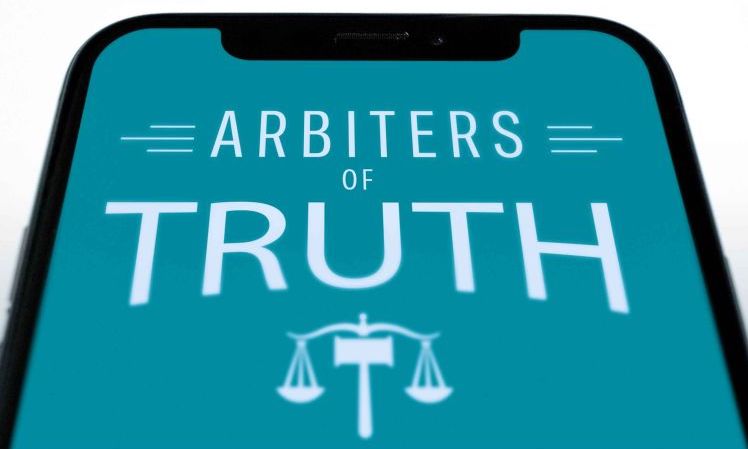-

Who Gets the Algorithm? The Bigger TikTok Danger
Fixing the app’s privacy issues may not address a larger problem—the Chinese government’s continued access to the algorithm. -

The Lawfare Podcast: Cox and Wyden on Section 230 and Generative AI
Among the many issues AI products raise is whether or not their outputs are protected by Section 230, the foundational statute that shields websites from liability for third-party content. -

The Lawfare Podcast: Cyber in the CIA with CIA Deputy Director David Cohen
David Cohen is the Deputy Director of the Central Intelligence Agency, a position he held also during the Obama administration. -

The Lawfare Podcast: An Interview with Meta’s Chief Privacy Officers
It’s been four years since the Cambridge Analytica settlement, and Facebook is now Meta. So how much has really changed within the company? -

FBI Publishes FISA Query Guidance From 2021
The Bureau released to the public two internal documents distributed in 2021 outlining procedures for the query of FISA information. -

Justice Department Requests Information on Registration of Foreign Agents
The request seeks to streamline the registry process, in accordance with the Foreign Agents Registration Act. -

Justice Department Arrests Two New York Residents for Operating Clandestine Chinese Police Station
The secret office enabled China’s Ministry of Public Security to monitor and intimidate political dissidents on U.S. soil. -

Who's Tackling Classified AI?
Innovative tools could collect the views of U.S. national security officials about what kinds of defense and intelligence AI we should use. -

A Brief History of Programmatic Collection Pre-Section 702
Given the importance of Section 702’s collection authorities for national security, it is worth reviewing how it compares to the original FISA. -

Addressing the Security Risks of AI
AI’s vulnerability to adversarial attack is not futuristic, and there are reasonable measures that should be taken now to address the risk. -

Making Unilateral Norms for Military AI Multilateral
The State Department’s political declaration on military AI is a good start to building global norms, but the U.S. needs to work with allies to make it a reality. -

ChatGPT and the First Amendment: Whose Rights Are We Talking About?
If ChatGPT is granted First Amendment rights, it won’t be because we are convinced that it has attained human-like personhood.
The upcoming main navigation can be gotten through utilizing the tab key. Any buttons that open a sub navigation can be triggered by the space or enter key.


.jpg?sfvrsn=fa287aaa_3)






-jpg.jpg?sfvrsn=ebcc8e50_0)
_-2-jpg.jpg?sfvrsn=d3e134fc_0)


